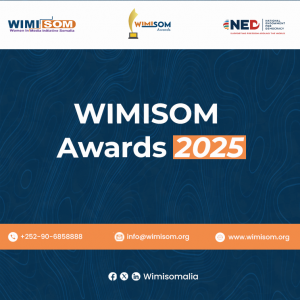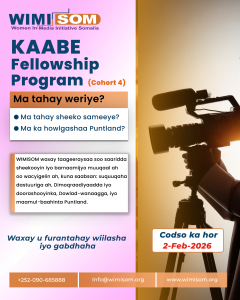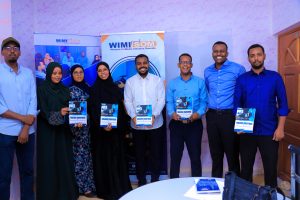The workshop, which brought together 20 journalists from across Puntland, aimed to enhance participants’ understanding of FGM and GBV, while equipping them with the skills to produce ethical and impactful stories on these sensitive issues. The sessions covered safeguarding survivors’ information, adhering to professional reporting standards, and effectively utilizing awareness messages developed by the Ministry of Women Development and Family Affairs.

In his opening remarks, WIMISOM Programs Director Yahye Mohamed Mahmoud underscored the objectives of the training, encouraging participants to use the opportunity to expand their knowledge, exchange experiences, and refine their reporting skills.

Speaking on behalf of the Puntland Ministry of Women Development and Family Affairs, Aamino Mahmoud Nur, Director of the GBV Department, briefed journalists on the region’s policies and legal frameworks addressing FGM and gender-based violence. She stressed the importance of approaching such topics with both professional responsibility and sensitivity.

Meanwhile, the Director General of the Puntland Ministry of Information, Mohamed Isse Osman, urged journalists to share the knowledge gained during the training with colleagues, to strengthen collective efforts to combat gender-based violence across Puntland.

Veteran journalist Mohamed Ahmed Ilkacase, who attended the opening session, also shared valuable insights on ethical storytelling and effective techniques to ensure impactful reporting.

During the course of the training, participants applied the guidance of trainers by developing a range of stories on FGM and GBV, demonstrating the practical application of the skills acquired.

The training was held under the project of Empowering Community to End FGM through Mobilization and Awareness Raising, implemented by WIMISOM in partnership with the Ministry of Women Development and Family Affairs and with support from GIZ.





